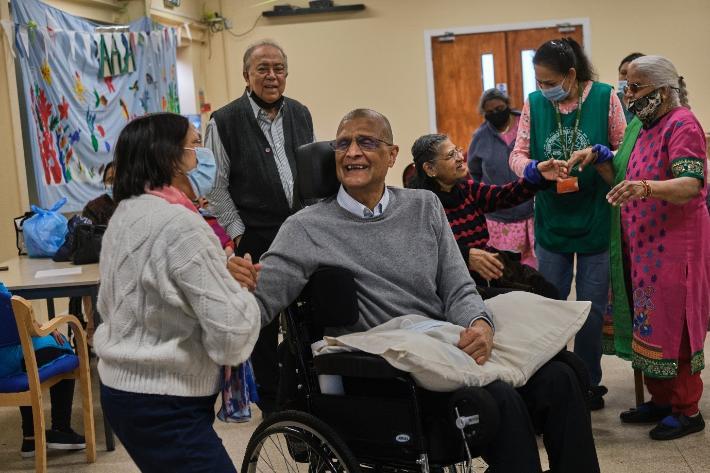Good Life with Dementia evaluation project: learning from real-life experiences
In this guest blog, Mohammed Akhlak Rauf writes about his experience of public and patient involvement in the evaluation of the Good Life with Dementia course: a course for people with dementia that is developed with and led by people with dementia.
Public Patient Involvement and Engagement (PPIE) is something that has really grown in academic research. Giving voice to lived experience of carers who look after a relative living with dementia is very important if we are to make a positive impact on their lives. This impact helps to capture the strengths, weaknesses, the positives and the negatives, as well as the ingredients needed to cope with sometimes complex or challenging circumstances. However, the voice of people living with dementia is equally important if not more so. When dementia strikes - I use the word strikes as it can often be quite a sudden label given to people who may or may not realise that their brain health is about to give them new challenges, and perhaps opportunities too, in how they live their lives and to make sense of the world around them.
The Good Life project is one such great example to putting people with dementia at the heart of an academic piece of work to understand whether people living their day-to-day lives can impart experience, knowledge and above all else their lived experience in supporting others.
Researching this peer-led approach, the project team - made up of academics from the University of York, experts by experience with lived experience of dementia and experts from the world of supporting people living with dementia and their carers - have been successful in identifying the criteria making this approach a success.
My involvement from Meri Yaadain CiC enabled me to reflect on my own experiences as a service provider organisation to think about cultural diversity and nuances and how these may or may not support or challenge what may otherwise be a Eurocentric approach to something identified as a taboo or stigma in the minoritised ethnic communities, namely dementia. Dementia is to increase 7 to 8-fold in the minoritised ethnic communities in comparison to the white English/British population. Being involved in this piece of work, I enjoyed learning about the approaches employed by this initiative and to help explore how things could be made culturally appropriate so that they incorporate sensitivities and nuances.
I felt at ease working with people who are genuinely open minded about the broader issues of diversity and inclusion. Listening to the feedback from Laura Tucker, one of the University of York researchers, about her experiences from the focus groups with Asian people, demonstrated the values talked about by the wider team of inclusion, equity, and diversity. Collaboration with people who had academic, professional, and dementia-based lived experiences gave strength to how this piece of work can continue to grow developing opportunities for the wider population to learn of the benefits of education, conversation and fun from peers living with dementia.
Listening to lived experience gave rise to constructive challenges, identifying unmet needs and created a sense of community where everyone was learning and building on their own experiences before having an input into how The Good Life project could create awareness of the benefits of peer-support, as well as how other areas may also be able to learn from good practice.
Given our extensive connections within the world of dementia - both in person and social media- we were able to support the work of this group by enhancing outreach and dissemination to some of our minoritised communities as well as organisations and individuals in our network.
Well done to Kate, Mark, Rachel, Laura, Beth and everyone else involved in this work.
Mohammed Akhlak Rauf MBE PhD
Meri Yaadain CiC

Image from Centre for Ageing Better’s age-positive image library
Contact us
Kate Gridley
Research Fellow
kate.gridley
+44 (0)1904 321988
Social Policy Research Unit, Church Lane Building, University of York, Heslington, York YO10 5ZF
@@GridleyKate
Contact us
Kate Gridley
Research Fellow
kate.gridley
+44 (0)1904 321988
Social Policy Research Unit, Church Lane Building, University of York, Heslington, York YO10 5ZF
@@GridleyKate